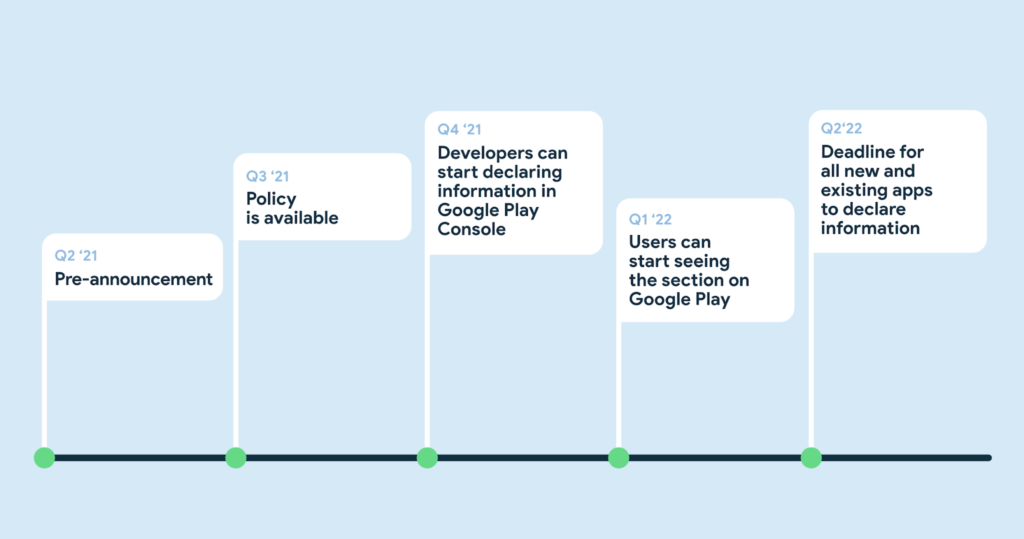
Google Confirmed Android Will Follow iOS-Like Data Collection Disclosures
- Android is going to introduce mandatory data collection and usage purpose declarations on all apps in 2022.
- This follows Apple’s recent move with the enforcement of the app tracking transparency system.
- Google is too late in convincing that it cares about user data and merely responds to competition here.
After Apple made the huge industry-changing move to introduce privacy warnings that inform the user about what data each app wants to collect, Google was compelled to follow suit sooner or later. Unfortunately, this couldn’t be introduced on the upcoming Android 12 as the decision wasn’t taken quickly enough, but as the tech giant confirms now, it will land in Q2 2022. After all, app developers will need some time to adjust to the new requirements, and a full year should be more than enough.
Here’s what the apps will be obliged to declare when the new policy will come into force:
- Whether it follows any data security practices, like data encryption.
- Whether it follows Android’s “Families” policy.
- Whether the requested data is needed for the app to function or if users have a choice in sharing it.
- Whether the safety section is verified by a third party.
- Whether the app supports requests for data deletion when the user uninstalls from their device.
Additionally, and concerning the data itself, the apps will have to disclose what type of data they collect and store, such as precise location, contacts, email address, photos, videos, etc. And finally, app developers will have to clearly define how the collected data is used. Here, there will be two categories, namely the app functionality and the service personalization, so there is going to be a clear distinction between unnecessary and necessary data collection, leaving no margins for masking or generalizations.
The policy will be made available in Q3 2021, so more details are going to land then. The developers will start declaring information in Google Play Console at the end of the year, and by the start of 2022, users will see the first relevant sections. Although Google warns that the provided timeline is subject to change, the current deadline was set for Q2 2022.
After all these years of Google not doing anything serious about app permissions on Android, Apple’s move to enforce app tracking transparency requirements has created a very asymmetric competition advantage. We’re sure that Google would prefer to keep the user data access tap open, and we’re also suspicious that the firm will try to give advertisers another way in, but they are definitely feeling the pressure now.
Users who are paying for mobile services are getting more privacy-conscious, and Apple is easily winning them over to the iOS space right now. We don’t know how the new Android policy will look like yet, but if it is a poor implementation, it’s not going to stop the bleeding. Hopefully, this is not going to be the case.







